Dušan Makavejev
Birth : 1932-10-13, Belgrade, Kingdom of Yugoslavia
Death : 2019-01-25
History
Dušan Makavejev is a Serbian film director and screenwriter, famous for his groundbreaking films of Yugoslav cinema in the late 1960s and early 1970s.

Himself (archive footage)
The Makavejev Case or Trial in a Movie Theater explores the position of an artist in the Socialist FR Yugoslavia, focusing on the political and social climate that used public platforms to condemn the film WR: Mysteries of the Organism, under the auspices of the Communist Party.

Self - Director
Filmmaker Hermann Vaske explores the creative Balkan world in the hopes of understanding the meaning of "Balkan spirit".

Self
The Midnight Sun Film Festival is held every June in the Finnish village of Sodankylä beyond the arctic circle — where the sun never sets. Founded by Aki and Mika Kaurismäki along with Anssi Mänttäri and Peter von Bagh in 1985, the festival has played host to an international who’s who of directors and each day begins with a two-hour discussion. To mark the festival’s silver anniversary, festival director Peter von Bagh edited together highlights from these dialogues to create an epic four-part choral history of cinema drawn from the anecdotes, insights, and wisdom of his all-star cast: Coppola, Fuller, Forman, Chabrol, Corman, Demy, Kieslowski, Kiarostami, Varda, Oliveira, Erice, Rouch, Gilliam, Jancso — and 64 more. Ranging across innumerable topics (war, censorship, movie stars, formative influences, America, neorealism) these voices, many now passed away, engage in a personal dialogue across the years that’s by turns charming, profound, hilarious and moving.

Himself
Through the conversation with Yugoslav film authors and excerpts from their films, this documentary film tells a story of a film phenomenon and censorship, and its focus is, in fact, a painful epoch of Yugoslav film called “a Black Wave”, which was the most important and artistically strongest period of Yugoslav film industry, created in the sixties and buried in the early seventies by means of ideological and political decisions. The film tells a great “thriller” story of the ideological madness which characterised the totalitarian psychology having left multiple consequences felt up to our very days. It stresses similarities between totalitarian regimes defending their taboos on the example of the persecution of the most important Yugoslav film authors. Those film authors have, however, made world careers and inspired many later authors. The film is the beginning of a debt pay-off to the most significant Yugoslav film authors.

Director
Despite its suggestive title, this multi-part Danish omnibus film is not a work of exploitation. Instead, it presents 20 different short films (back-to-back) on the general theme of Danish women, directed by filmmakers including Krzysztof Zanussi, Monika Treut, Gustav Hamos, David Blair, Vibeke Vogel, Dusan Makavejev, Morten Skallerud and Lars Norgaard. Some dramatic vignettes mix with other comedic ones, but all are offbeat and experimental. The picture includes one animated sequence (by Norgaard).

Director
A self-portrait documentary of Dusan Makavejev who travels to former Yugoslavia, and charts the changes of the society which parallels to his own life.

Writer
A Red Army major caught between East and West Berlin finds his wife gone and somebody else moved into his apartment.

Director
A Red Army major caught between East and West Berlin finds his wife gone and somebody else moved into his apartment.
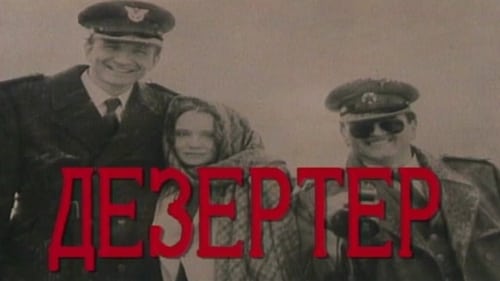
Zatvorenik (uncredited)
During the Yugoslav break-up, Federal Army officer is fed up with war and takes some leave in Belgrade. However, it turns out that he is less haunted by war horrors than with some sentimental skeletons in the closet. He meets his former comrade and best friend who is AWOL, but can't report him because he had an affair with his wife.

Writer
In a small European country, the king is scheduled to visit a small, quiet and "safe" village. It turns out that while the village may indeed be small, it's neither as quiet nor as safe as it's expected to be.

Director
In a small European country, the king is scheduled to visit a small, quiet and "safe" village. It turns out that while the village may indeed be small, it's neither as quiet nor as safe as it's expected to be.
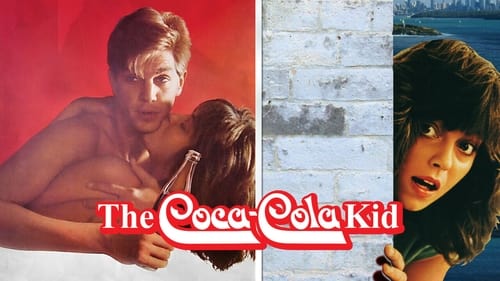
Director
An eccentric marketing guru visits a Coca-Cola subsidiary in Australia to try and increase market penetration. He finds zero penetration in a valley owned by an old man who makes his own soft drinks, and visits the valley to see why. After "the Kid's" persistence is tested he's given a tour of the man's plant, and they begin talking of a joint venture. Things get more complicated when the Coca-Cola man begins falling in love with his temporary secretary, who seems to have connections to the valley.

Ilya Grigorivich Vertov, The Soldier
A soldier, returning home from war, chances upon a stranger who offers to buy his violin, the stranger is none other than the devil
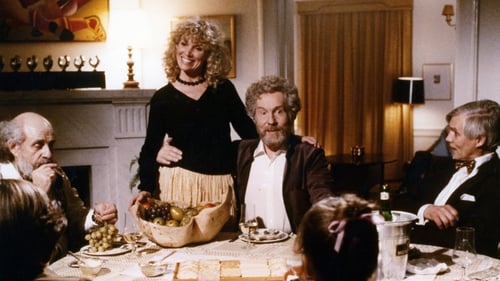
Writer
Marilyn Jordan, an American, lives in Stockholm with her Swedish husband and family. Her behavior is bizarre, perhaps mad: she poisons the dog's milk and advises the dog not to drink it; she sets the sheets afire as her husband sleeps; she crawls under the dining table to sing. While detained at airport customs for carrying pruning shears, she meets a young Yugoslav woman and goes with her to a Gypsy enclave where she's fought over, takes a lover, helps with the sordid entertainment at a bar, and returns home more dangerous than before. The film also tells parallel stories of Marilyn's daughter becoming a junior homemaker as the young immigrant practices her striptease.

Director
Marilyn Jordan, an American, lives in Stockholm with her Swedish husband and family. Her behavior is bizarre, perhaps mad: she poisons the dog's milk and advises the dog not to drink it; she sets the sheets afire as her husband sleeps; she crawls under the dining table to sing. While detained at airport customs for carrying pruning shears, she meets a young Yugoslav woman and goes with her to a Gypsy enclave where she's fought over, takes a lover, helps with the sordid entertainment at a bar, and returns home more dangerous than before. The film also tells parallel stories of Marilyn's daughter becoming a junior homemaker as the young immigrant practices her striptease.

Director
Experimental anthology film consisting of nine segments - Contrasts, The Janitor, The Plumber, Another Wet Dream, The Happy Necrophiliacs, On a Sunday Afternoon, A Face, Politfuck, Flames - all focused on 70s sex, love and politics.
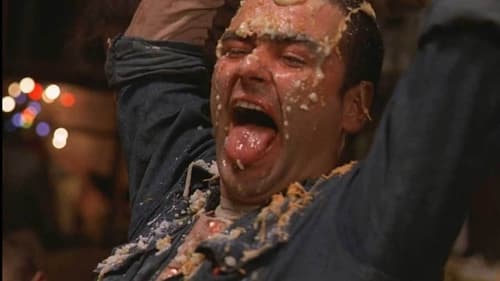
Screenplay
The winner of the Miss World Virginity contest marries, escapes from her masochistic husband and ends up involved in a world of debauchery.

Director
The winner of the Miss World Virginity contest marries, escapes from her masochistic husband and ends up involved in a world of debauchery.

Interviewee
An interview with Yugoslavian director Dušan Makavejev.
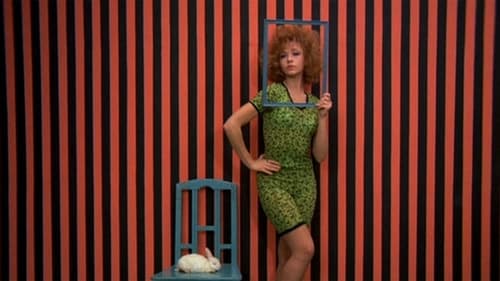
Writer
What does the energy harnessed through orgasm have to do with the state of communist Yugoslavia circa 1971? Only counterculture filmmaker extraordinaire Dušan Makavejev has the answers (or the questions). His surreal documentary-fiction collision WR: Mysteries of the Organism begins as an investigation into the life and work of controversial psychologist and philosopher Wilhelm Reich and then explodes into a free-form narrative of a beautiful young Slavic girl’s sexual liberation.

Producer
What does the energy harnessed through orgasm have to do with the state of communist Yugoslavia circa 1971? Only counterculture filmmaker extraordinaire Dušan Makavejev has the answers (or the questions). His surreal documentary-fiction collision WR: Mysteries of the Organism begins as an investigation into the life and work of controversial psychologist and philosopher Wilhelm Reich and then explodes into a free-form narrative of a beautiful young Slavic girl’s sexual liberation.

Director
What does the energy harnessed through orgasm have to do with the state of communist Yugoslavia circa 1971? Only counterculture filmmaker extraordinaire Dušan Makavejev has the answers (or the questions). His surreal documentary-fiction collision WR: Mysteries of the Organism begins as an investigation into the life and work of controversial psychologist and philosopher Wilhelm Reich and then explodes into a free-form narrative of a beautiful young Slavic girl’s sexual liberation.
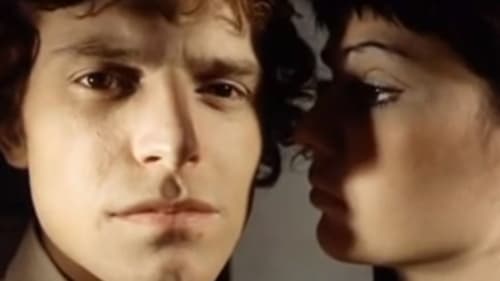
Director
One camera in one setting, one attic and eight young directors – the result is a unique Dadaistic collage of seven short sketches. The original task for each filmmaker was to keep each short under three minutes, to set it in one hotel room, and to include the sentence “I miss Sonja Henie." This experimental film was shot over a single night at the international film festival FEST in Beograd in 1971.

Writer
A documentary about the famous athlete and movie enthusiast who made Serbia's first sound film, Innocence Unprotected. The Nazi occupation of Belgrade prevented the film from gaining wider acclaim. Director Makavejev intersperses clips of the original film with interviews of surviving cast and crew members, as well as newsreel and archival footage.

Director
A documentary about the famous athlete and movie enthusiast who made Serbia's first sound film, Innocence Unprotected. The Nazi occupation of Belgrade prevented the film from gaining wider acclaim. Director Makavejev intersperses clips of the original film with interviews of surviving cast and crew members, as well as newsreel and archival footage.
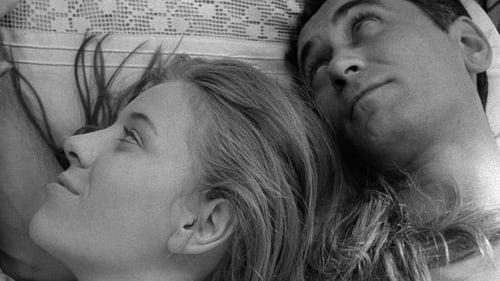
Writer
After many adventures, young female switchboard operator starts a love relationship with a serious young man. But while he's away on business, she gets lonely and succumbs to her colleague's passes.

Director
After many adventures, young female switchboard operator starts a love relationship with a serious young man. But while he's away on business, she gets lonely and succumbs to her colleague's passes.
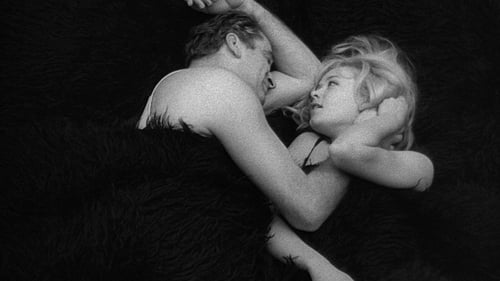
Writer
A Serbian engineer falls for a younger woman, but he is inept at courtship.

Director
A Serbian engineer falls for a younger woman, but he is inept at courtship.

Writer
This short doc is about changes occurring in Yugoslav rural life as it begins to reap the benefits of motorization, e.g. delivering fruits and veggies to market by automobile, but with a bitter theme: progress is set against horses sent to the slaughter as the car becomes the new domestic animal replacing the animals that had hitherto worked for man.

Director
This short doc is about changes occurring in Yugoslav rural life as it begins to reap the benefits of motorization, e.g. delivering fruits and veggies to market by automobile, but with a bitter theme: progress is set against horses sent to the slaughter as the car becomes the new domestic animal replacing the animals that had hitherto worked for man.

Writer
Parade, one of Makavejev’s best-known films, is view into the preparations International Worker’s Day where the director all but ignores the titular parade. The film focuses on the people – those who work and those who wander the streets, sometimes lost among the throngs, shown in a by-the-way fashion and not without humor. Makavejev claims he sought to show, man as he is...

Director
Parade, one of Makavejev’s best-known films, is view into the preparations International Worker’s Day where the director all but ignores the titular parade. The film focuses on the people – those who work and those who wander the streets, sometimes lost among the throngs, shown in a by-the-way fashion and not without humor. Makavejev claims he sought to show, man as he is...

Writer
Socialist work ethic meets youthful exuberance and lightheartedness where backbreaking labor does not ruin anyone's summer vacation.

Director
Socialist work ethic meets youthful exuberance and lightheartedness where backbreaking labor does not ruin anyone's summer vacation.

Writer
A young woman tries to make love to a park statue, but despite her passionate efforts, the monument remains cold and heartless. Don’t Believe in Monuments is an early short, where Makavejev subtly ridicules Yugoslav state-sponsored monument and history worship.

Director
A young woman tries to make love to a park statue, but despite her passionate efforts, the monument remains cold and heartless. Don’t Believe in Monuments is an early short, where Makavejev subtly ridicules Yugoslav state-sponsored monument and history worship.

Director
To Makavejev, each tombstone plays vicar for its resident spirit; it haunts, roams, and makes conversation.

Director
Makavejev archives the symbolism of a folk tradition by piecing a cinematic quilt from Kilim weavings of different hands.

Director
An examination of the surprisingly morbid world of 17th and 18th century Slovenian beekeeper drawings to guide the bees back to the right hive.

Writer
First five minutes of the film show a weird fellow who is playing marbles with kids and seems to be just biding his time. Film after the titles continues to follow his adventures as his love story unfolds. A love story between him and a doll in a window shop.

Director
First five minutes of the film show a weird fellow who is playing marbles with kids and seems to be just biding his time. Film after the titles continues to follow his adventures as his love story unfolds. A love story between him and a doll in a window shop.

Writer
Inspired by the 1928 experimental film by Robert Florey and Slavko Vorkapich, The Life and Death of 9413, a Hollywood Extra, this amateur short is the story of a man who spends his entire life under the thumb of anonymous bureaucrats. The titular seal adorns everything in life, from birth to death, in a criticism of bureaucracy and power over the individual, in a film that makes stylistic references to silent cinema.

Director
Inspired by the 1928 experimental film by Robert Florey and Slavko Vorkapich, The Life and Death of 9413, a Hollywood Extra, this amateur short is the story of a man who spends his entire life under the thumb of anonymous bureaucrats. The titular seal adorns everything in life, from birth to death, in a criticism of bureaucracy and power over the individual, in a film that makes stylistic references to silent cinema.












